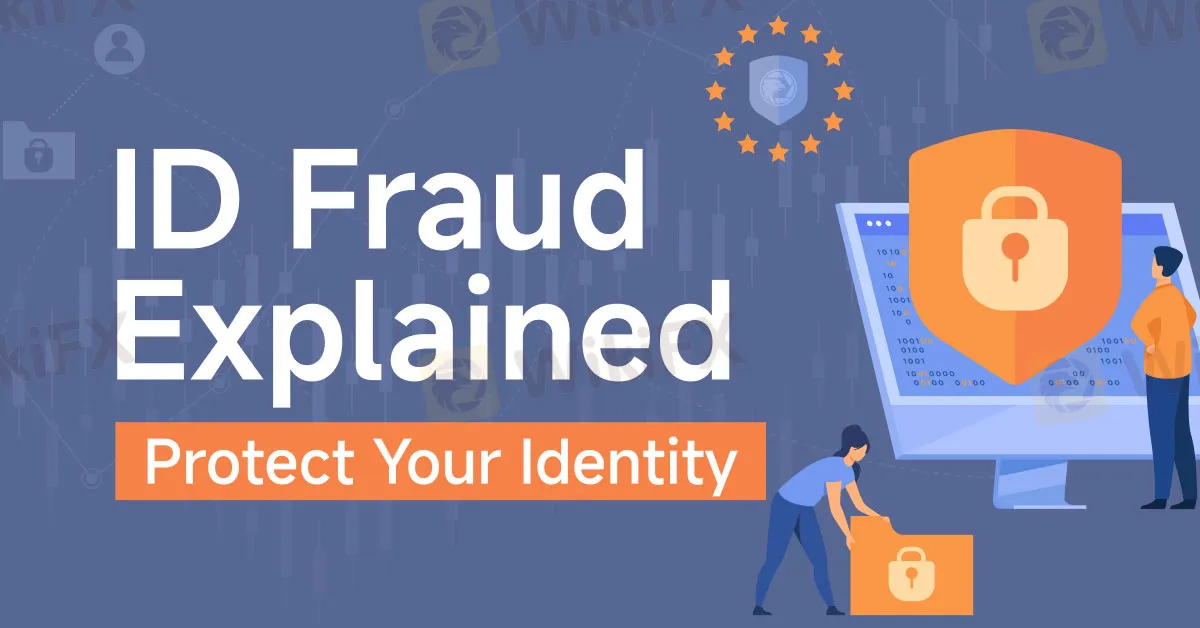简体中文
繁體中文
English
Pусский
日本語
ภาษาไทย
Tiếng Việt
Bahasa Indonesia
Español
हिन्दी
Filippiiniläinen
Français
Deutsch
Português
Türkçe
한국어
العربية
ID Fraud Explained | Protect Your Identity
Abstract:In an increasingly digitized financial landscape, the menace of identity fraud looms large, casting its shadow across various sectors, including the ever-evolving realms of forex and cryptocurrency trading. Understanding the nature of this threat, how individuals become unwitting victims, and the specific risks posed in the online trading sphere is crucial in fortifying defences against this pervasive financial crime.

Israeli identity verification technology firm AU10TIX has recently unveiled its Q3 2023 Global Identity Fraud Report, a comprehensive analysis of millions of transactions across 249 nations spanning July through September 2023. This thorough examination exposes notable alterations in organized identity fraud patterns.
Among the key findings, the report highlights a noteworthy surge of 56% in fraudulent activities within the digital payments sphere. This substantial rise stands in stark contrast to a significant 51% decrease in fraudulent incidences associated with cryptocurrencies.
Identity fraud involves the unauthorized use of personal information, such as Social Security numbers, credit card details, or other sensitive data, for deceptive financial gain. Perpetrators deploy various methods to acquire this information, from phishing scams and data breaches to social engineering tactics.

Modern cybercriminals employ sophisticated tactics that frequently catch individuals off guard. Among these strategies are phishing scams, where fraudsters impersonate legitimate entities via emails or websites, coaxing victims into disclosing sensitive information. Data breaches on a large scale compromise databases, exposing personal data that can be exploited for fraudulent activities. Additionally, social engineering tactics manipulate individuals into voluntarily divulging confidential information, further exacerbating the risk of falling victim to identity fraud.
The dynamic and decentralized landscape of online trading platforms provides a fertile ground for both opportunities and risks. Within these realms, identity fraud manifests in various troubling ways. Fraudsters execute account takeovers, breaching trading accounts to siphon funds or execute unauthorized trades. Moreover, criminals exploit stolen identities to fabricate fake accounts, engaging in illicit transactions under unsuspecting victims' names. Additionally, scammers within these domains employ phony investment schemes, using false identities to lure investors into fraudulent endeavours, thereby undermining credibility and causing financial harm.
Mitigating the risks posed by identity fraud demands a multi-faceted approach. Firstly, education and awareness play pivotal roles in safeguarding against fraudulent activities. Staying informed about common fraud tactics and remaining updated on evolving security measures are paramount. This knowledge equips individuals to recognize red flags, thereby averting potential scams. Moreover, platforms like WikiFX can be instrumental in this effort, offering insights and reviews about trading platforms, aiding users in making informed decisions. Secondly, implementing robust security measures stands as a cornerstone in fortifying defences. Utilizing multi-factor authentication, ensuring secure connections, and regularly updating security software create formidable barriers against cyber threats. Additionally, due diligence in evaluating trading platforms is essential. Verifying their legitimacy, scrutinizing user agreements, and reviewing privacy policies can significantly mitigate risks. Finally, maintaining vigilance in transactions is crucial. Scrutinizing transaction details, monitoring account activities, and promptly reporting any suspicious behaviour are fundamental practices to thwart identity fraud.

Disclaimer:
The views in this article only represent the author's personal views, and do not constitute investment advice on this platform. This platform does not guarantee the accuracy, completeness and timeliness of the information in the article, and will not be liable for any loss caused by the use of or reliance on the information in the article.
Read more

Want to Succeed in Forex? Start with the Right Trading System
If you want to trade currencies and make money in the long run, you need a good forex trading system. Many new traders enter the market without a clear plan. Some rely on luck or tips from others. But trading without a system often leads to losses.

Risk Involved with Cabana Capital – Every Trader Should Know
Cabana Capital has changed its name and logo, basically everything about its identity. This seems a bit suspicious, and it's something you should definitely be concerned about. In this article, you’ll learn about the red flags that every trader needs to watch out for.

CME International Records a Massive Jump in Forex Volumes
CME International recorded a record surge in its foreign exchange trading volumes during the second quarter. Check out its performance across products and markets.

Scam Brokers Exposed! FCA Warns Traders to Stay Safe
If you are into forex trading, you need to protect your money from investment scams. Many scam brokers are active in the market now. The FCA, a reputed financial regulator, has issued a list of unlicensed brokers you need to stay away from.
WikiFX Broker
Latest News
US Government Interest Grows in Victory Metals’ Rare Earths Supply
How Are Trade Policies Affecting the Aluminum Market?
RM71,000 Lost in a Share Scheme That Never Existed
Scammed by a Click: He Lost RM300,000 in a Month
Manual vs. Automated Forex Trading: Which One Should You Choose?
Revealing Factors That Help Determine the Gold Price in India
Why Regulatory Compliance Is the Secret Ingredient to Trustworthy Forex Brokers
Pentagon to become largest shareholder in rare earth miner MP Materials; shares surge 40%
Delta shares jump 12% after airline reinstates 2025 profit outlook as CEO says bookings stabilized
Delta shares jump 13% after airline reinstates 2025 profit outlook as CEO says bookings stabilized
Currency Calculator


